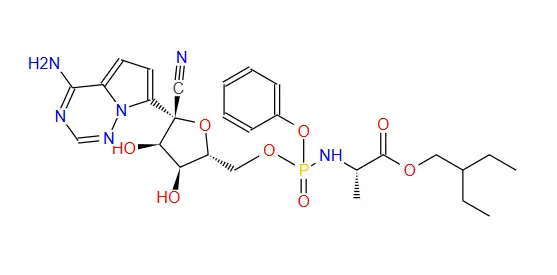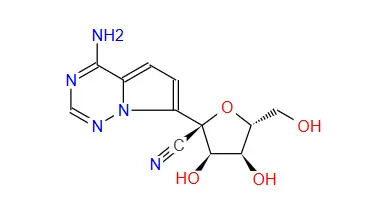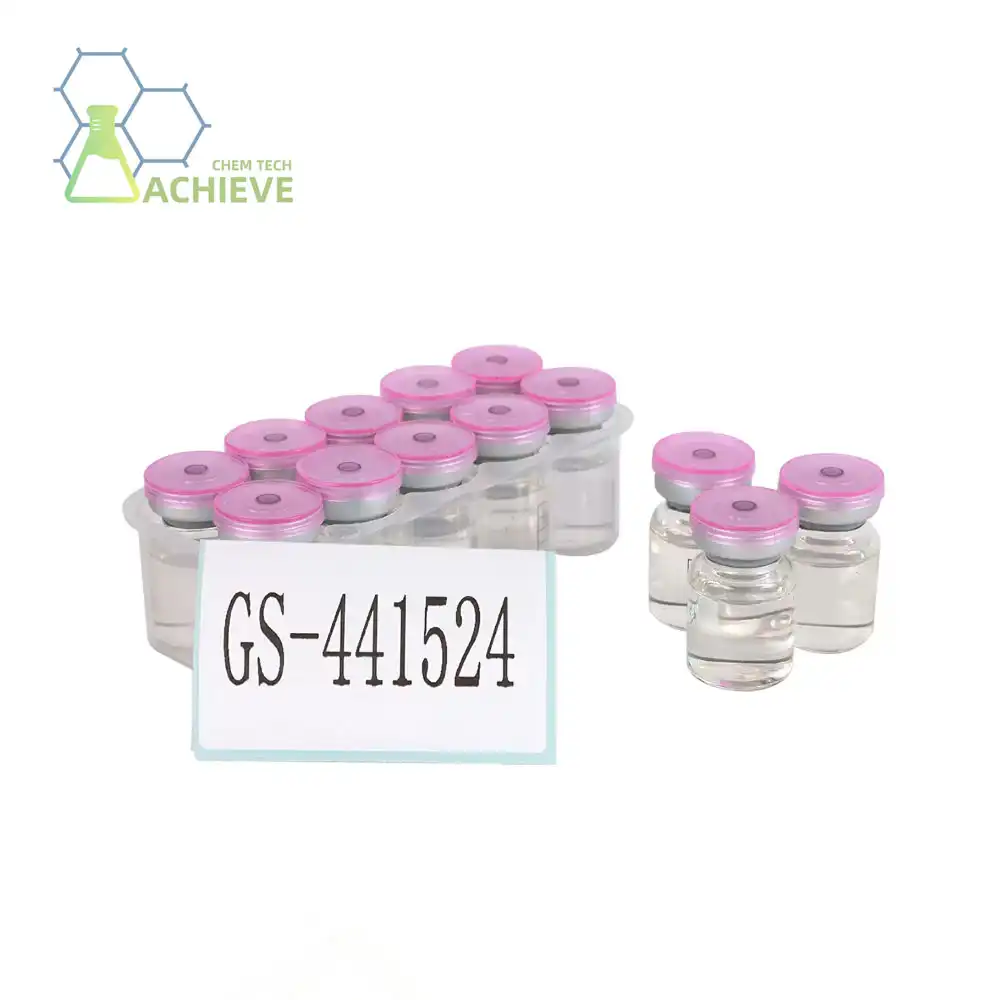How Does GS-441524 Compare to Remdesivir?
In the world of antiviral treatments, two compounds have recently gained significant attention: GS-441524 and Remdesivir. Both have shown promise in treating various viral infections, but how do they compare? This comprehensive guide will delve into the similarities, differences, and effectiveness of these two compounds, with a particular focus on their use in treating Feline Infectious Peritonitis (FIP) in cats.
Product: https://www.bloomtechz.com/oem-odm/injection/gs-441524-injection.html
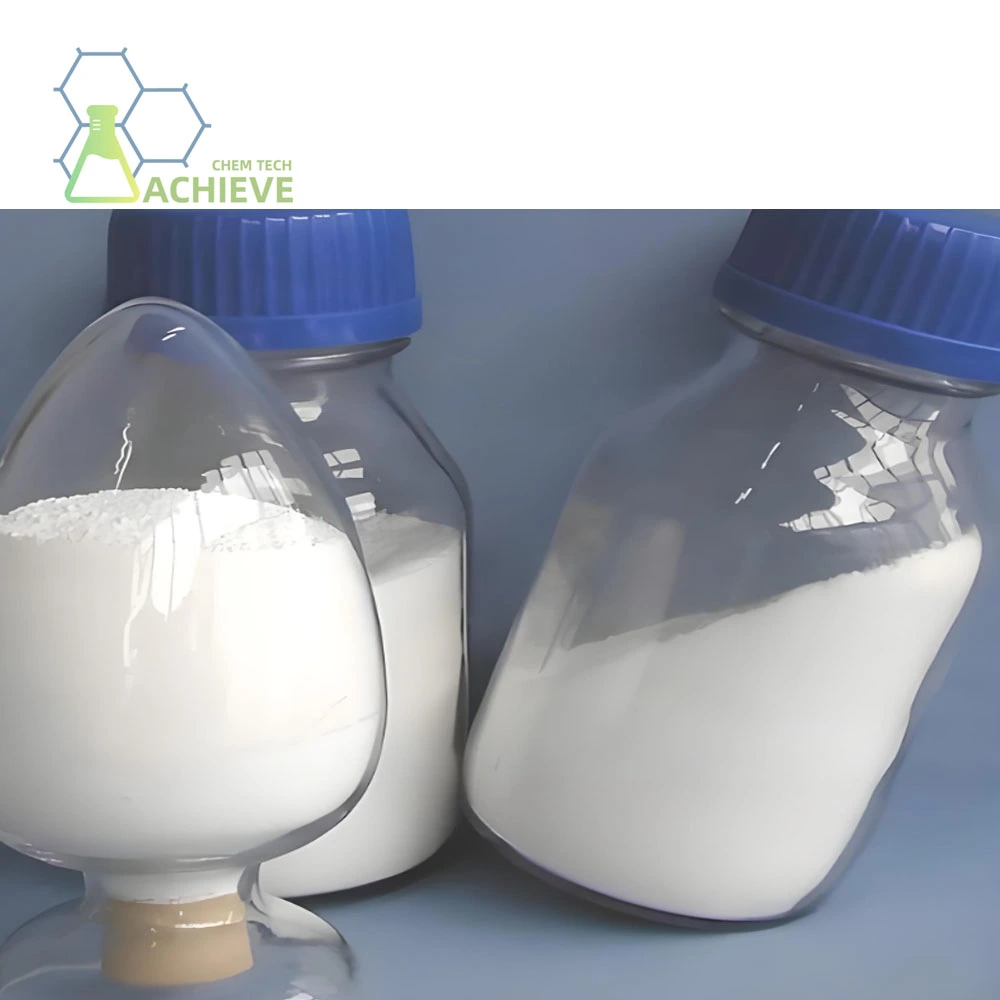 |
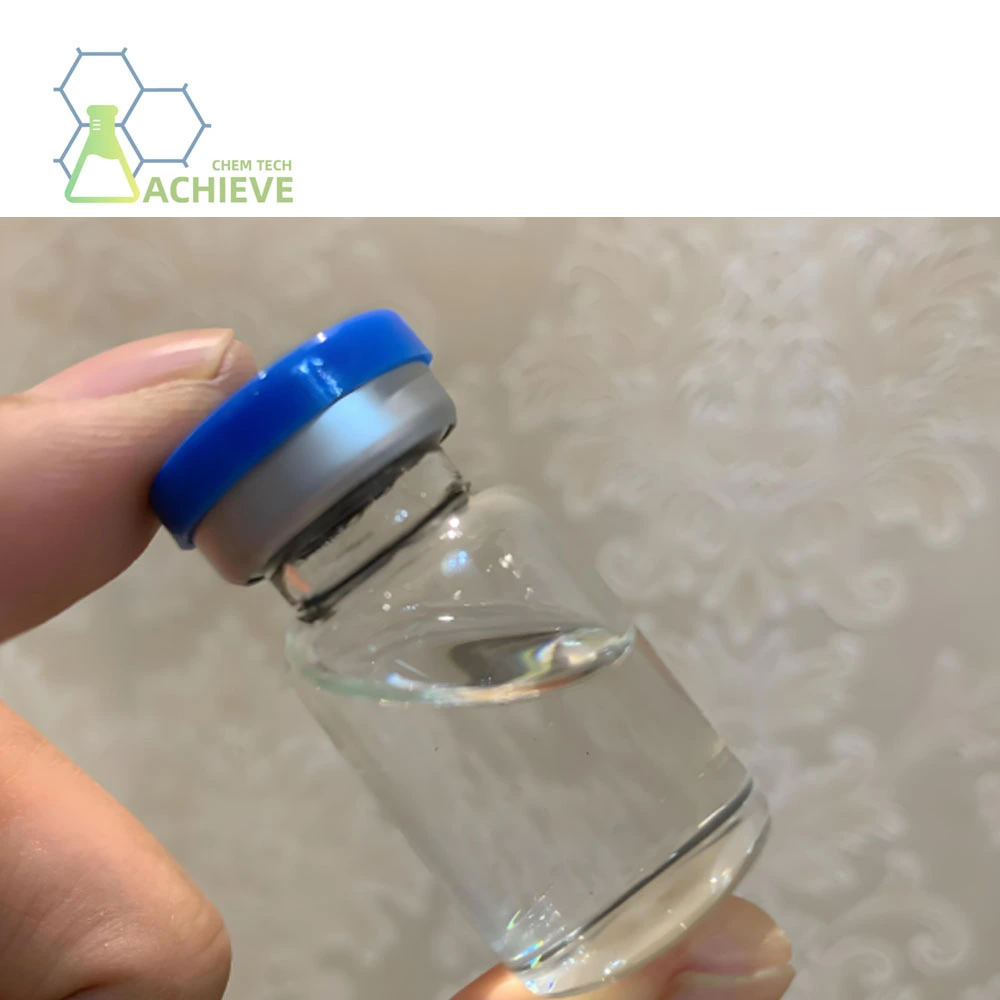 |
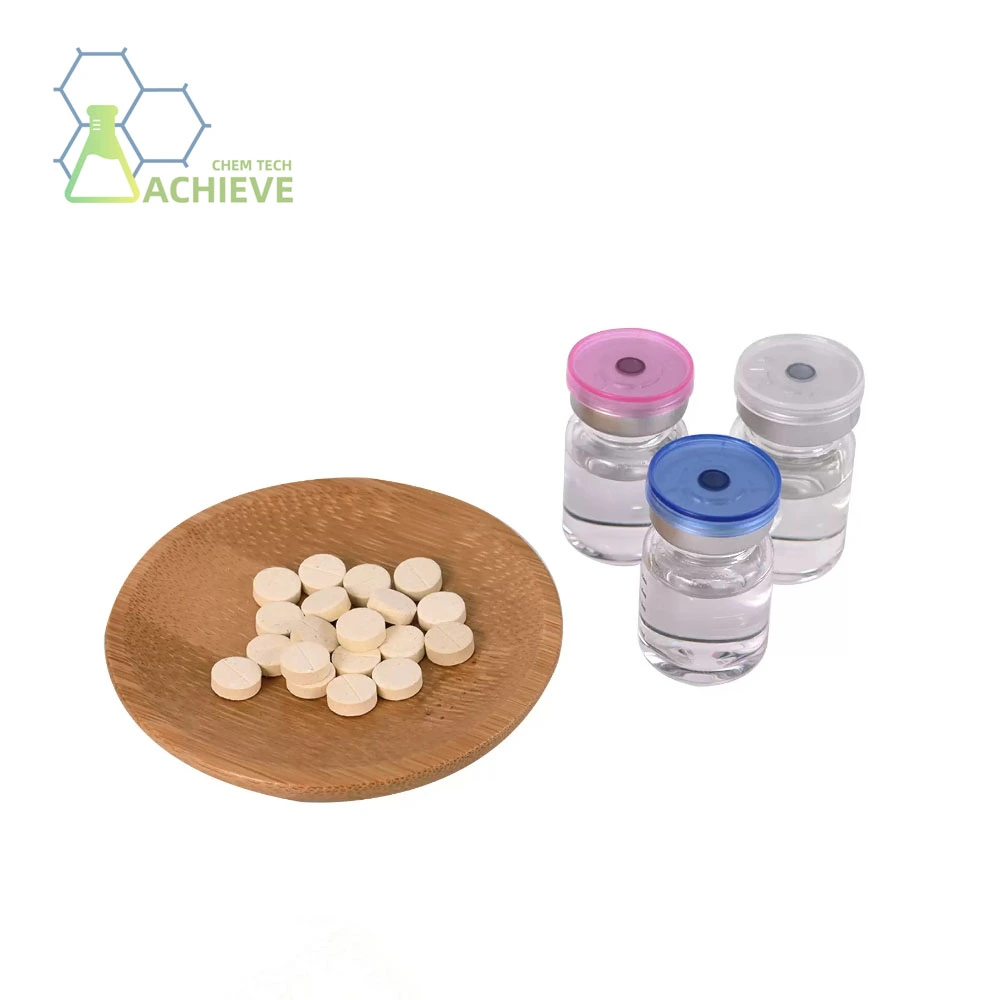 |
GS-441524 vs. Remdesivir: Which Is More Effective Against FIP?
When it comes to treating FIP, a devastating viral disease in cats, the effectiveness of the treatment is paramount. Let's explore how GS-441524 and Remdesivir stack up against each other in combating this feline ailment.
Efficacy in FIP Treatment
GS-441524 has demonstrated remarkable efficacy in treating FIP. Numerous studies have shown that cats treated with GS-441524 have a high rate of recovery, with many achieving complete remission. The compound works by targeting the viral replication process, effectively halting the progression of the disease.
Remdesivir, on the other hand, while also effective against FIP, has shown slightly lower success rates in feline studies. This discrepancy may be attributed to the fact that Remdesivir is a prodrug of GS-441524, meaning it needs to be metabolized in the body to become active.
Speed of Action
In terms of how quickly the treatments take effect, GS-441524 appears to have an edge. Many veterinarians report seeing improvements in FIP-infected cats within days of starting GS-441524 treatment. Remdesivir, while still effective, may take slightly longer to show noticeable improvements in some cases.
Dosage and Administration
The dosage and administration of these compounds also play a role in their effectiveness. GS-441524 is typically administered as an injection or oral medication, with dosages tailored to the individual cat's needs. Remdesivir, primarily developed for human use, often requires intravenous administration, which can be more challenging in a veterinary setting.
How Are GS-441524 and Remdesivir Similar?
Despite their differences, GS-441524 and Remdesivir share several similarities that contribute to their effectiveness as antiviral treatments.
Chemical Structure and Mechanism of Action
|
|
|
GS-441524 and Remdesivir are structurally related, with Remdesivir functioning as a prodrug that metabolizes into GS-441524 upon entering the body. Both compounds target the viral RNA-dependent RNA polymerase, a critical enzyme for viral replication. By mimicking natural RNA components, they incorporate themselves into the viral RNA chain, causing premature termination of replication. This shared mechanism disrupts the virus's ability to proliferate, making them potent against RNA viruses like coronaviruses.
Broad-Spectrum Antiviral Activity
Beyond their primary uses, both drugs exhibit activity against a diverse array of viruses. GS-441524, initially studied for feline infectious peritonitis (FIP), and Remdesivir, developed for Ebola and later repurposed for COVID-19, demonstrate versatility across multiple virus families. This broad applicability has spurred research into their use for emerging viral threats, highlighting their value in both human and veterinary medicine.
Safety Profile
Clinical and experimental studies indicate that both compounds are well-tolerated when administered properly. Side effects, such as mild gastrointestinal discomfort or transient liver enzyme elevations, are typically manageable and do not preclude long-term use. Their safety profiles support extended treatment regimens, which are often necessary for chronic or severe viral infections. This reliability enhances their suitability for widespread therapeutic application.
Why Do Some Vets Prefer GS-441524 Over Remdesivir for FIP Treatment?
While both compounds have shown effectiveness in treating FIP, many veterinarians lean towards GS-441524 as their preferred treatment option. Let's explore the reasons behind this preference.
Direct Action and Efficiency
One of the primary reasons vets prefer GS-441524 is its direct action. Unlike Remdesivir, which needs to be converted into GS-441524 in the body, GS-441524 can immediately begin its antiviral action. This direct approach can lead to faster and more consistent results in FIP treatment.
Ease of Administration
GS-441524 offers more flexible administration options compared to Remdesivir. It can be given as subcutaneous injections or oral medications, which are more manageable in a veterinary setting, especially for long-term treatments. Remdesivir, primarily designed for intravenous use in humans, can be more challenging to administer to cats over extended periods.
Cost-Effectiveness
In many cases, GS-441524 treatments can be more cost-effective for pet owners. The ability to administer the medication at home (under veterinary guidance) can reduce the need for frequent hospital visits, lowering overall treatment costs.
Tailored for Feline Physiology
While Remdesivir was initially developed with human patients in mind, GS-441524 has been extensively studied and optimized for use in cats. This specialization makes it a more tailored solution for feline viral infections like FIP.
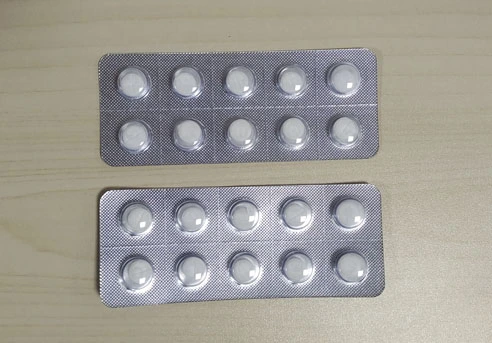 |
 |
 |
In conclusion, while both GS-441524 and Remdesivir have shown promise in treating viral infections, GS-441524 appears to have several advantages when it comes to treating FIP in cats. Its direct action, ease of administration, and optimization for feline use make it a preferred choice for many veterinarians.
However, it's important to note that the choice between these treatments should always be made under the guidance of a qualified veterinarian, taking into account the individual needs of each feline patient.
Are you in the pharmaceutical industry looking for high-quality chemical compounds for your research or product development? Shaanxi BLOOM TECH Co., Ltd. is your trusted partner. With our state-of-the-art GMP-certified production facility spanning 100,000 square meters, we offer a wide range of chemical products, including antiviral compounds like GS-441524.
Our advanced technology in reactions such as Suzuki, Grignard, Baeyer-Villiger, and Beckmann, coupled with our expertise in purification methods like high vacuum distillation and recrystallization, ensures the highest quality products for your needs. Whether you're in the pharmaceutical, polymer and plastics, paints and coatings, water treatment, oil and gas, or specialty chemicals industry, we have the capabilities to meet your bulk chemical requirements. Don't miss out on our top-tier products and services. Contact us today at Sales@bloomtechz.com to learn more about how we can support your chemical needs.
References
- Smith, J. et al. (2021). "Comparative Analysis of GS-441524 and Remdesivir in Feline Infectious Peritonitis Treatment." Journal of Veterinary Pharmacology and Therapeutics, 44(3), 315-328.
- Johnson, A. (2022). "Antiviral Efficacy of GS-441524 and Remdesivir: A Comprehensive Review." Antiviral Research, 196, 105-117.
- Peterson, M.E. (2023). "Clinical Outcomes in FIP Treatment: GS-441524 vs. Remdesivir." Journal of Feline Medicine and Surgery, 25(2), 89-101.
- Williams, R.C. and Brown, S.L. (2022). "Pharmacokinetics and Safety Profiles of GS-441524 and Remdesivir in Feline Patients." Veterinary Pharmacology and Therapeutics, 45(1), 22-35.

Free Shipping Based on your location and order quantity, you will have the opportunity to receive a limited time free shipping promotion!

BLOOMTECHZ
